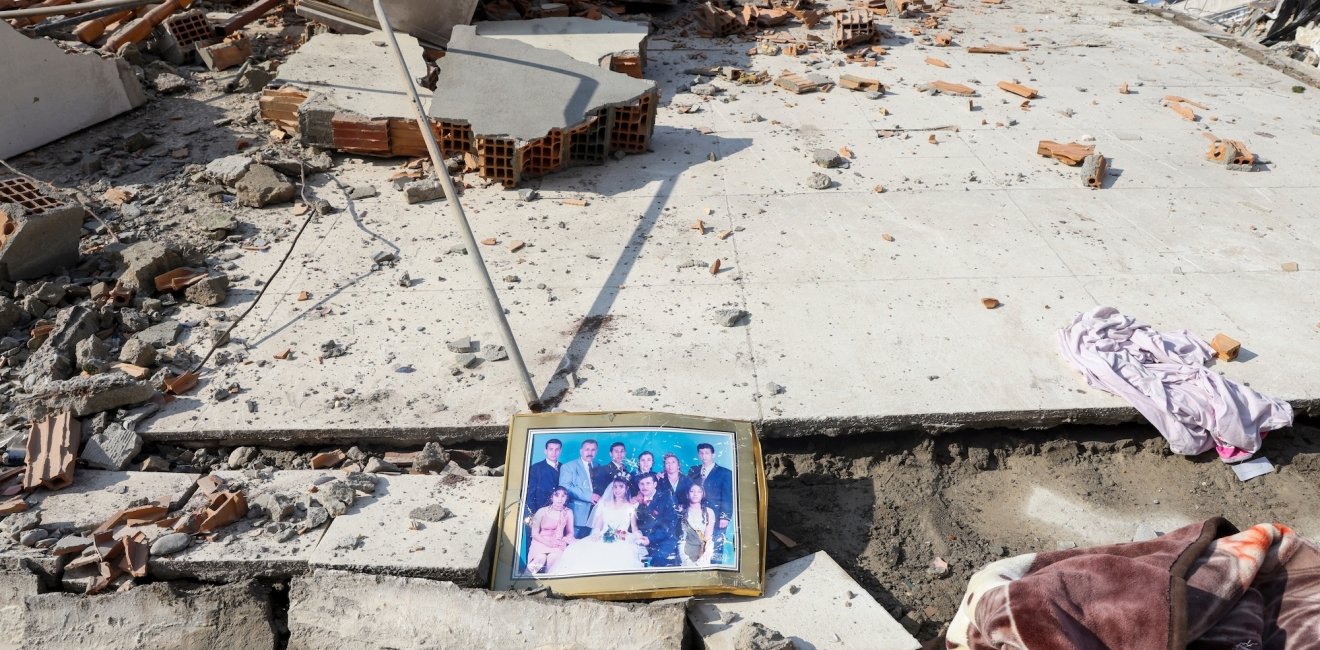
A blog of the Middle East Women's Initiative
However, we must remember the tragedy of Northwest Syria is compounded by over a decade of intense military conflict that has leveled its infrastructure, displaced its communities, and destroyed its social fabric.
Four months have passed since the devastating earthquakes struck southeast Turkey and northwest Syria, leaving millions of people in desperate need of humanitarian assistance. Access to essential services such as water, education, and healthcare remains inadequate, pushing families to their limits. While the international response has been delayed, local communities have shown resilience despite already limited resources.
However, we must remember the tragedy of Northwest Syria is compounded by over a decade of intense military conflict that has leveled its infrastructure, displaced its communities, and destroyed its social fabric.
Unequal support
The international humanitarian response has varied across the affected areas in Turkey, northwest Syria (under opposition control), and the region controlled by the Syrian regime. This disparity has resulted in millions of already internally displaced people in Syria struggling to find adequate shelter and access to essential services. Delivering aid to northwest Syria has been particularly limited due to the approach many countries take of activating assistance to disaster areas through preexisting structures that assume a constructive role by the central government.
In the case of northwest Syria, the Syrian regime—the entity many international donors and responders to the earthquake must deal with—has been the main party responsible for the systematic destruction of the entire region. What’s more, northwest Syria was statistically the most devastated part of Syria by the earthquake.
As such, approaching the northwest requires a specialized approach that considers the nuanced realities of that region. A chief concern is mainlining the UN cross-border mechanism that remains to be the most essential artery of the region, but is constantly held hostage by Russia’s veto of the UN Security Council resolution that authorizes it.
Across the border, as the world's largest refugee-hosting country, Turkey faces significant challenges in ensuring the well-being of over 3.6 million Syrian refugees. Protecting the rights of Syrian refugees, regardless of their registration status, and preventing deportations are essential responsibilities for the Turkish government.
It is crucial to recognize the myriad contributions refugees make, who have become active members of Turkish society, contributing their skills and expertise to various sectors. Further, sustained support and assistance for the Syrians affected by the earthquakes is an urgent need, as they are the most vulnerable affected groups, but naturally at the end of the line to receive governmental support. Failure to address these challenges may result in another refugee crisis and deep risks to the lives of these communities.
A path forward
The ongoing humanitarian crises in Turkey and Syria require meaningful attention and action from the international community, including the United States. Providing necessary support and assistance will help affected individuals and communities recover, prevent further deterioration, discourage migration, and foster resilient communities. Additionally, Turkey must prioritize the safety and security of its substantial Syrian refugee population, upholding international legal obligations and promoting inclusivity.
Collaborative efforts between Syrian and Turkish civil society organizations are also vital to raise awareness and foster understanding to overcome existing gaps and negative perceptions of refugees. By addressing these challenges, we can create a better future for millions of displaced individuals and build stronger, more resilient societies.
Author


Middle East Program
The Wilson Center’s Middle East Program serves as a crucial resource for the policymaking community and beyond, providing analyses and research that helps inform US foreign policymaking, stimulates public debate, and expands knowledge about issues in the wider Middle East and North Africa (MENA) region. Read more


Middle East Women's Initiative
The Middle East Women's Initiative (MEWI) promotes the empowerment of women in the region through an open and inclusive dialogue with women leaders from the Middle East and continuous research. Read more

Explore More in Enheduanna
Browse Enheduanna
Women are the Catalysts for Change in Lebanon

How Education Can Empower Young Women in MENA


